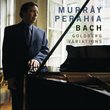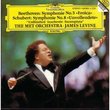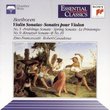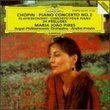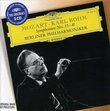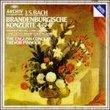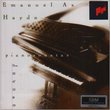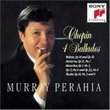| All Artists: Dietrich Fischer-Dieskau, Carl Orff, Eugen Jochum, Berlin Deutschen Opernhauses Orchester, Deutschen Opernorchester, Gundula Janowitz, Gerhard Stolze Title: Carl Orff: Carmina Burana Members Wishing: 0 Total Copies: 0 Label: Deutsche Grammophon Release Date: 5/14/1996 Genre: Classical Style: Opera & Classical Vocal Number of Discs: 1 SwapaCD Credits: 1 UPC: 028944743722 |
Search - Dietrich Fischer-Dieskau, Carl Orff, Eugen Jochum :: Carl Orff: Carmina Burana
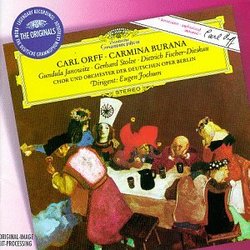 | Dietrich Fischer-Dieskau, Carl Orff, Eugen Jochum Carl Orff: Carmina Burana Genre: Classical
No Description Available No Track Information Available Media Type: CD Artist: ORFF,C. Title: CARMINA BURANA Street Release Date: 05/14/1996 |
Larger Image |
CD DetailsSynopsis
Product Description No Description Available No Track Information Available Media Type: CD Artist: ORFF,C. Title: CARMINA BURANA Street Release Date: 05/14/1996 Similar CDs
Similarly Requested CDs
|
CD ReviewsA Version That Wears Its Years Well Jeffrey Lipscomb | Sacramento, CA United States | 05/19/2005 (5 out of 5 stars) "I first heard Carmina Burana in a college production back in Spring of 1965 (end of my freshman year). Like virtually everybody who hears it for the first time, I was immediately taken with Orff's secular cantata and bought Jochum's FIRST recording on Decca LP (that was a mono recording from the early 1950's - this DG stereo account didn't come along until 1967). When THIS recording came out, I bought the DG LP and discarded the Decca: the sonics were MUCH better on the re-make, and the performance sounded more fully realized. Since then, I have seen two other stagings of Carmina Burana and heard some of the other recordings (Muti, Ozawa, Previn, etc.), but my loyalties remain with this one. Sure, the stereo sound is a little dated (a slight cut in treble smooths out the edgy highs - all in all, this CD is sonically a considerable improvement on the original LP). The recording was supervised by Orff himself, Jochum's conducting is rhythmically vigorous and exhilarating, and the soloists all sound just great to me (not perfect, but great is good enough). I still think Janowitz does the "In trutina" more appealingly than anybody else I've heard. The only other recording I have kept is the Stokowski (EMI), but that's mainly because of the coupling: "A Pagan Poem" by Charles Loeffler, a beautiful work that deserves to be better known. To my taste, the Jochum recording is preferable to Stokowski's Carmina Burana. I don't think you can go wrong in buying this one. Highly recommended." A truly incredible recording drstrangelove84 | Cleveland, OH United States | 09/30/2000 (5 out of 5 stars) "This recording is far and away the best performance of Carmina Burana. The mood and feeling of each poem are incredible in their power. Both takes of "O Fortuna" are more threatening and potent than any other I have ever heard. "Fortune plango vulnera" ties with the second version of "O Fortuna" as my favorite song and "In taberna quando sumus" is a close third. are Jochum has truly recorded THE definitive Carmina Burana. There are some very minor downsides to the recording. Occasionaly, a page turn can be heard, but I believe this only adds to the vitality of the perfomance. My one real quibble is Janowitz. The Amazon editorial review is largely correct - in Dulcissime, she sounds rather strained. It doesn't bother me as it does some people, possibly because I'm not a singer. However, Dulcissime a :34 song, and given the true brilliance of this recording, it can be easily overlooked. Some VERY minor quibbles I have with the recording: - first, there seems to be some controversy over the spelling of the town and monestary from where the Latin text is supposed to have originated. Most liner notes translate "Carmina Burana" as "Songs from Benediktbeuren", including this version. However, some people hold that "Burana" refers to Benediktbeurn rather than -beuren, which is a more common German ending. A small difference, to be sure. Also, there are some errors in the Latin text (the full original text in Latin and sometimes German is provided, with running English translations). The earlies example is in "Fortune plango vulnera", in the third stanza, where the Latin reads "nam sub axe legimus/Hecubam reginam." The provided translation is "for under the axis is written/Queen Hecuba." Problem: legimus means "we write", not "it is written." That would be legitur. Also, in various places throughtout the text, what would be "mihi" in Classical Latin becomes "michi" in this text. I'm not a Medievalist, and I don't know if this is an alternate form or just an error. Certainly, these are insignificant issues. I only mention them because they exist - they of course do not harm the listening experience in any way.This recording was performed in 1968. When I first listened to the recording, I didn't know that and I thought it was a more recent recording. The sound quality is beautiful. It has depth and vigor and power that is truly amaziing. Please, don't be discouraged by any of the very minor trifles I have mentioned above. If you are looking for a recording, buy this one. Any other would be a waste of your money when this truly incredible recording is available." Jochum, Fischer-Dieskau, how can you go wrong? Donald C. Allen | Carlisle, MA USA | 05/09/2001 (5 out of 5 stars) "These are great musicians, folks. And this is really a fantastic performance. The much touted Previn recording doesn't begin to compare, in my opinion. Just listen to Previn in "O Fortuna". It's too slow, for starters, and there's some rythmic instability in the climax in the second part that is really disconcerting. The Jochum, on the other hand, is right on the money; everything happens exactly when it should. Fischer-Dieskau is so good (as he always seems to be; does anyone else need to do Schoene Mullerin after FD and Gerald Moore?; or the Mahler Wunderhorn songs?) it's just no contest."
|

 Track Listings (25) - Disc #1
Track Listings (25) - Disc #1
